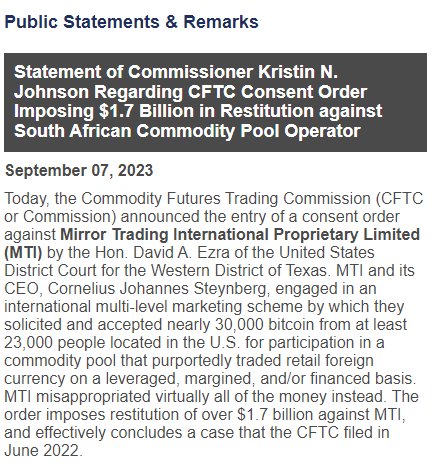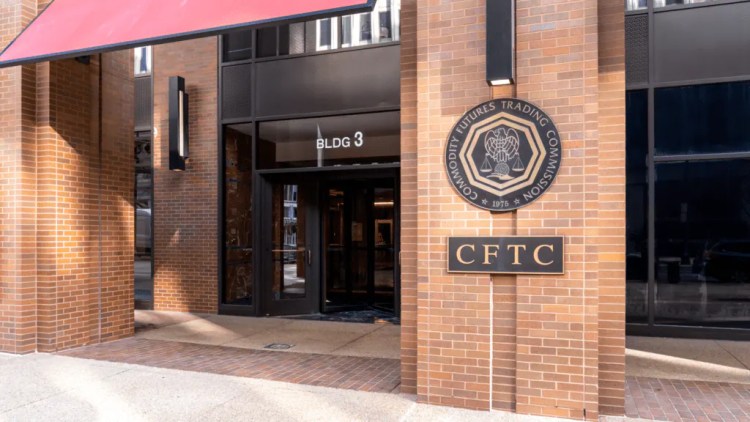The US court ordered Mirror Trading International to pay $1.7 billion in compensation for crypto fraud. The case, which dates back to 2022, calls it one of the largest Ponzi schemes ever.
US court gives final verdict for notorious crypto company
A US District Court judge ordered a South African to pay more than $1.7 billion in damages to victims for operating a fake commodity pool worth approximately Bitcoin, US regulator CFTC announced on Thursday.
The CFTC said MTI and its CEO, Cornelius Steynberg, were involved in an “international multi-level ponzi scheme” that accepted approximately 30,000 Bitcoins. According to the findings, they raised funds from at least 23,000 people in the United States. In exchange for these crypto funds, MTI was promising to provide access to an unregistered commodity pool. However, this never happened.

In June, the CFTC alleged that MTI solicited Bitcoin from thousands of people to operate its commodity pool. The company claimed that it had a special software that would generate significant profits for investors by using the BTCs it collected. However, in reality, such a “bot” never existed.
According to the CFTC, they only used a small portion of the pooled Bitcoin as promised. The rest was “improperly embezzled.” The company eventually filed for bankruptcy in 2021. Shortly afterwards, South African authorities launched a fraud investigation.
CFTC officials warn
CFTC official Kristin Johnson wrote the following regarding investments in the announcement regarding MTI:
I strongly encourage the public to learn about potential fraud and abuse in the cryptocurrency markets by visiting our investor advisory page.
I commend the Enforcement Division for continuing to remain vigilant and sending a strong message to the market that the Commission will do what is necessary to protect its markets from fraud.

The sanction against MTI follows a pilot cryptocurrency regulatory program proposed by CFTC commissioner Caroline Pham. The commissioner said on September 7 that he plans to propose a pilot program for the cryptocurrency markets. She claimed that the US may soon need to “catch up” to crypto-friendly jurisdictions. To the details cryptocoin.comYou can take a look at this article.







